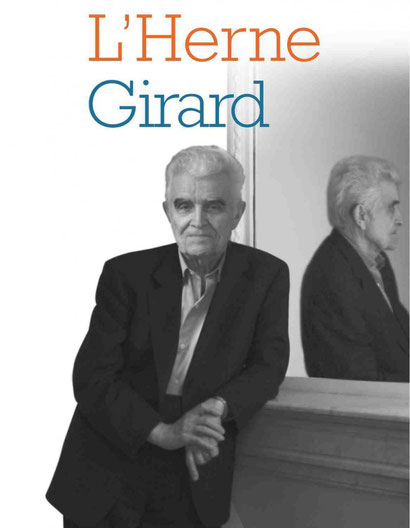
Cahier de L'Herne Girard
Dirigé par Mark Anspach
Textes de Pascal Bruckner, J. M. Coetzee, Michel Deguy, Paul Dumouchel, Jean-Pierre Dupuy, René Girard, Jean-Claude Guillebaud, André Orléan, Jean-Michel Oughourlian, Pierre Pachet, Paul Ricœur, et Michel Serres, entre autres
Commander : L'Herne |
"Excellent."
—Philosophie Magazine
"Ce trésor de 45 textes sera prisé (...) Le Cahier d'Anspach est un document de travail précieux."
—Wiel Eggen, Colloquium on Violence & Religion, COV&R Bulletin
"Un remarquable Cahier (...) Tous les grands paradigmes du parcours girardien y sont analysés, remis en question, souvent célébrés, plus rarement contestés, mais toujours avec intelligence. On y trouve également de très intéressants et nombreux textes inédits, ou aujourd'hui indisponibles, de René Girard. (...) Un ouvrage brillant, vraiment, qui a le mérite de nous rappeler l'importance de ce penseur."
—Normand de Bellefeuille, Spirale - Magazine culturel (Montréal)
"Each of the articles in this treasure trove of interviews, correspondence, panegyrics, polemics, and anecdotes refracts the light shed by the mimetic theory (...) Reading this Cahier convinced me once again that mimetic theory is the most fruitful way forward for the human sciences. Gender studies, subaltern studies, gay and lesbian studies, race, ethnicity, and migration studies, and all of the other various forms of post-colonial cultural history, seek to show how categories our forefathers took for granted are in fact cultural constructions set up to perpetuate victim-making differences. The mimetic theory says nothing else, but despite its lack of an activist slant, it is still more radical than the various brands of deconstruction currently in fashion. It offers a take on religion and culture that at once exposes violence and warns of the danger in doing away with all cultural constraints. (...) Will we be able to manage our violence much longer, both within our families and communities, and on the larger geopolitical scale? Each of the articles in the Cahier Girard leads us sooner or later to this overwhelming question."
—Trevor Merrill, Lingua Romana
Lire la recension complète ici